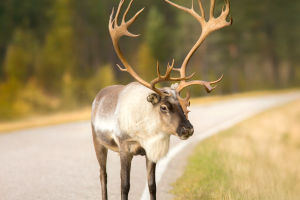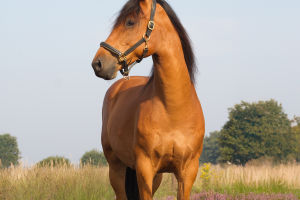I was at a riding stable last summer, watching a woman approach a horse named Daisy. The horse flicked her ears, turned her head—and then walked straight to her, nuzzling the woman's shoulder like an old friend.
I asked the trainer who she was. "She hasn't been here in seven years," he said. "But Daisy remembers her. That woman used to bring her apples and talk softly every afternoon."
That moment stuck with me. We assume memory and emotional recognition are uniquely human—or maybe shared with dogs and cats. But horses? Turns out, they're far more perceptive than we give them credit for.
Scientists have now proven that horses don't just recognize human faces—they remember them for years, even decades. And it's not just about who gave them treats. They pick up on your mood, your tone, your body language, and store that info like a mental file. When you show up again, they don't just see you. They feel you.
They Read Faces Like We Read Text Messages
Think about how fast you can tell if someone's happy, angry, or faking a smile. Horses do the same—but faster. In a 2018 study, researchers showed horses photos of people who had previously treated them kindly versus those who had startled or scolded them. The horses consistently looked longer at the negative faces, often turning their left eye toward them—a sign they were processing emotional threat.
Why the left eye? Because in mammals, the right brain hemisphere (which controls the left side of the body) handles fear and stress responses. So when a horse gives you that side-eye, it's not being rude. It's doing a threat assessment.
And get this: they can pick out your face from a crowd. In another experiment, horses were shown photos of their current caretaker alongside strangers. Over 75% of the time, they went straight to the familiar face—even though they were seeing just a flat image, not the real person.
Memory That Lasts Longer Than Your Phone's Battery
We forget names. We misplace keys. But horses? They remember.
One documented case followed a horse who hadn't seen his teenage groomer for 10 years. When the young man returned—now in his late twenties—the horse whinnied, trotted to the fence, and pressed his nose into the man's chest. No hesitation. No confusion. Just pure recognition.
How is this possible? Horses evolved as social herd animals. In the wild, knowing who's friendly and who's dangerous means survival. That wiring didn't disappear when they started living with humans. If anything, it got sharper.
They don't just remember your face. They remember your energy. The way you walked into the barn. The tone you used when you said, "Hey, buddy." Even how you stood—tense or relaxed—gets stored in their emotional memory bank.
What This Means for How You Show Up
So here's the real question: if a horse remembers you that clearly, what kind of impression are you leaving?
Most people think of horse care as feeding, grooming, riding. But the emotional part? That's just as important. And the good news is, you can build that trust fast—if you know how.
Here are 3 simple ways to make sure a horse remembers you—in a good way:
Be consistent with your energy
Walk into the barn like you mean calm, not chaos. Horses pick up on rushed breathing, tight shoulders, or impatience. Take two deep breaths before you approach. Let your shoulders drop. Smile—even if you're tired. They'll feel it.
Use your voice like a tool
Say the horse's name the same way every time. Add a soft "good girl" or "easy now" when you're near them. Over time, your voice becomes a signal of safety. One trainer told me she sings the same two lines of a song every time she feeds her horse. After three months, the horse perked up at the first note—even from 50 yards away.
Spend quiet time, not just task time
Most human-horse interaction is functional: tack up, ride, clean, leave. But try this: stand near the horse for 5 minutes without doing anything. No brushing, no leading. Just be.
Let them sniff your sleeve, watch your hands. That stillness builds deeper trust than any training session.
I've seen horses lower their heads, sigh, even close their eyes during these moments—signs they're relaxed and feeling safe.
So next time you're near a horse, remember: they're watching more than your actions. They're reading your presence. And they'll remember it—long after you've forgotten the details of the day.
Ever walked away from an animal thinking you left no mark—only to return years later and find they still know you? What does that say about the quiet moments we think don't matter?


